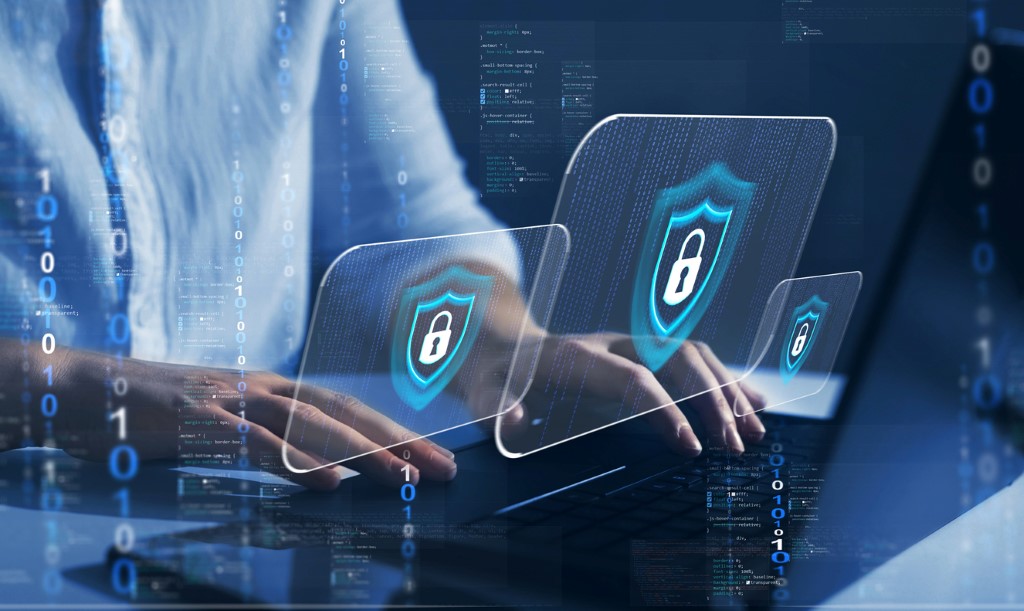In the realm of digital learning, a Learning Management System (LMS) plays a pivotal role in delivering and managing educational content. However, as much as an LMS simplifies learning and training, it also raises substantial concerns regarding data security, and in an era where data breaches are not just a possibility but a common occurrence, securing your LMS should be a key priority. So, let’s take a look at some of the most essential security features that are crucial in safeguarding data within your LMS.
User Authentication and Access Control
First and foremost, robust user authentication and access control mechanisms are the bedrock of any secure system: your LMS should have strong password policies, multi-factor authentication, and role-based access controls. These features ensure that only authorised individuals have access to sensitive data and functionalities, and help create something of a “fortress”, where only those with the right credentials can enter.
Data Encryption and Privacy Measures
Data encryption isn’t just a fancy term – it’s a necessity. When it comes to creating a top customer learning management system, encrypting data at rest and in transit ensures that even if data is intercepted, it remains indecipherable to unauthorised users. Moreover, privacy measures like anonymisation and pseudonymszation of user data add an extra layer of security, ensuring that personal information isn’t exposed – even if there’s a breach.
Regular Software Updates and Patch Management
Keeping your LMS software up-to-date is akin to changing the locks regularly. Regular software updates and patch management are critical in fixing vulnerabilities that could be exploited by cybercriminals – if we return to our fortress metaphor, an LMS that isn’t regularly updated is a bit like a fortress with a weak wall waiting to be breached.
Secure Storage and Backup Procedures
Imagine losing all your data in a system crash and having no backup – scary, isn’t it? For this reason, having tight knit secure storage and robust backup procedures are essential; your LMS should not only store data securely, but it should also be backed up regularly in multiple locations. This ensures that in the event of any disaster, your data remains safe and can be easily restored at the click of a few buttons.
Monitoring and Audit Trails
Circling back to monitoring, visibility is key in security: continuous monitoring and creating audit trails enable you to track who accesses what data and when, and this serves not only in detecting suspicious activities, but also helps in maintaining a record for compliance purposes. Put simply, it’s like having a security camera inside your LMS.
Training and Awareness Programs
Often, the weakest link in security is the human element; training and awareness programs for users and administrators play an equally critical role in enhancing LMS security. This means educating your team about best practices, potential threats, and how to respond to security incidents – when you train your team correctly, you’re essentially preparing your first line of defence.
Compliance with Industry Standards and Regulations
Finally, compliance isn’t just a legal requirement; it’s a security standard. Ensuring that your LMS adheres to industry standards and regulations like GDPR, HIPAA, or FERPA is crucial for optimal function and safety. And not only does it help build trust among your users, but it also ensures that your system meets the highest security benchmarks. In short, it’s a non-negotiable.
The Bottom Line
Overall, the security of your LMS isn’t an aspect to be overlooked or underplayed in favour of aesthetic concerns; it’s a critical component that ensures the integrity, confidentiality, and availability of data. By incorporating these essential security features, you’re not just protecting data; you’re safeguarding the trust of your users and the reputation of your organisation.
If you’re assessing LMS data protection, remember that it’s not just about checking boxes; it’s about creating a secure learning environment. For insights on how to know if your data is safe in an LMS, explore our detailed guide here. And if you’re looking for a top customer learning management system that embodies these security features, discover more at DigitalChalk. Secure your LMS, secure your future.
FAQs
What is Multi-Factor Authentication (MFA) and why is it important for LMS security?
Multi-Factor Authentication (MFA) is a security system that requires more than one method of authentication from independent categories of credentials to verify the user’s identity. In the context of LMS, MFA is crucial because it adds an extra layer of defence, making it significantly harder for unauthorised users to access sensitive educational data or personal information.
How does regular software updating contribute to LMS security?
Regular software updates are crucial as they often include patches for security vulnerabilities that have been discovered since the last version of the software. By staying updated, you are ensuring that your LMS is safeguarded against known threats, in turn maintaining the integrity and security of your system and data.
How does data encryption protect information in an LMS?
Data encryption translates data into another form or code so that only people with access to a secret key or password can read it. In an LMS, encrypting data both at rest and in transit ensures that sensitive information like personal details and learning records are kept secure from unauthorised access or breaches.
Can user training really make a difference in enhancing LMS security?
Yes – users are often the first line of defence against security threats. Training them in best practices, recognising phishing attempts, and understanding the importance of strong passwords can significantly reduce the risk of security breaches. Educated users are more likely to adhere to security protocols and report suspicious activities.

